Benchmarks: AS SSD Benchmark
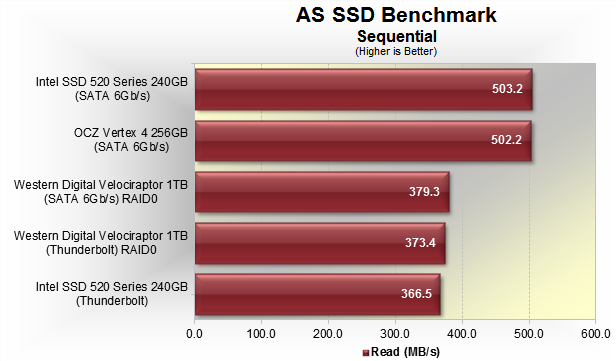
The first AS SSD Benchmark test focuses on sequential read performance and here we see that a single OCZ Vertex 4 or Intel SSD 520 Series SSD can achieve a throughput of just over 500MB/s using the SATA 6Gb/s interface. However, placing the Intel SSD 520 Series drive in the Duo reduced its throughput to just 366.5MB/s. The Velociraptor HDDs on the other hand delivered similar performance when connected to the motherboard as they did inside the Duo. However, given the performance of the 520 Series, it's possible that the Velociraptor drives are maxing out the performance of the Duo.
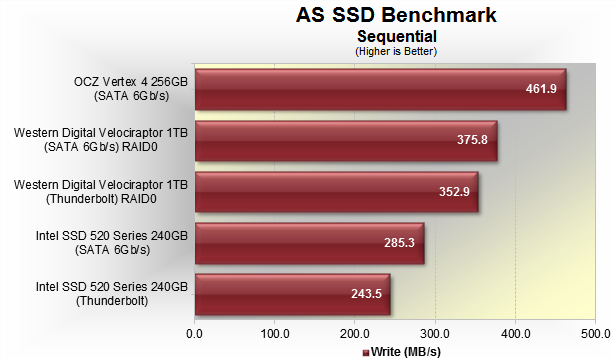
The sequential write results are a bit different to the read performance above. The 520 Series drive achieved a throughput of 285.3MB/s when connected to the motherboard's SATA 6Gb/s port and this was reduced to just 243.5MB/s when using the Thunderbolt interface with the Duo, while the Velociraptor drives managed 375.8MB/s when connected to the motherboard and hit just 352.9MB/s in the Duo.
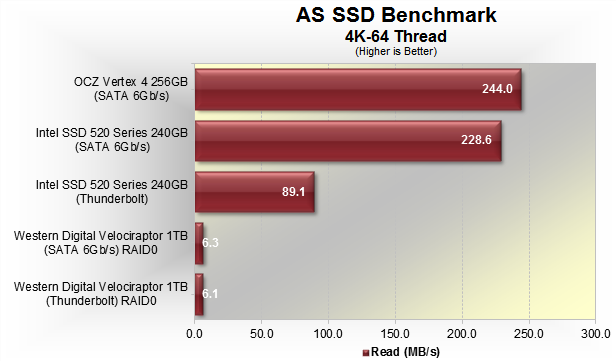
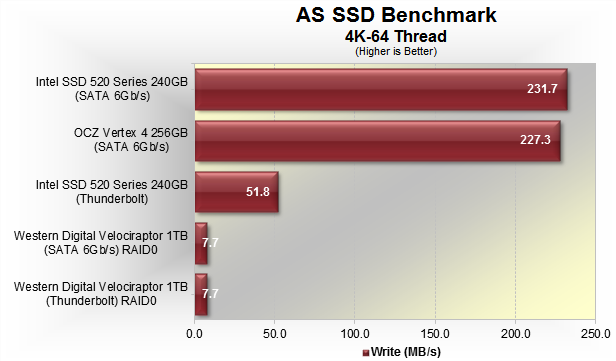
Because SATA supports Native Command Queuing (NCQ), it has a distinct advantage in the AS SSD Benchmark 4K-64 Thread benchmark. Regardless of whether we measure read or write performance, SSDs connected to the SATA 6Gb/s interface are going to be much faster. The Velociraptor drives on the other hand are the bottleneck here and not the interface, so there was no difference in performance when using Thunderbolt or SATA.
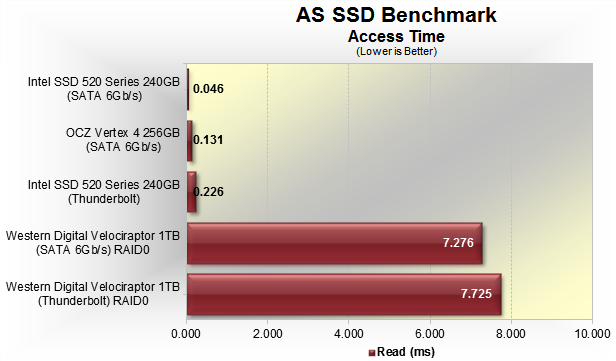
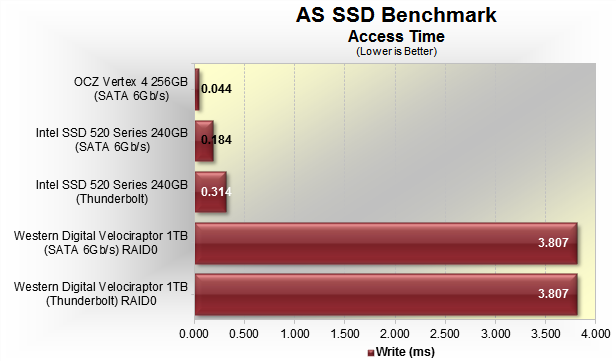
The Velociraptor's access time is similar when using either Thunderbolt or SATA, though the latter was slightly faster when measuring reads. The 520 Series drive, however, was notably faster when connected to the motherboard's SATA 6Gb/s port.
